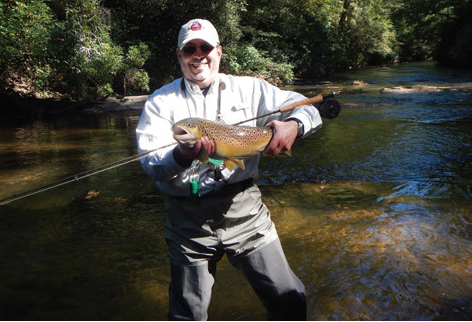The Lee A. Hebert Distinguished Professor of Nephrology
Director, Division of Nephrology
Vice Chair for Research, Department of Internal Medicine
The Ohio State University Wexner Medical Center
WashU Nephrology Fellow, 1986-1988

Brad Rovin, MD, remembers a particularly vivid moment while he was a nephrology fellow at Washington University that led to a pioneering procedure being performed.
“I was called to see a young patient who was on ECMO and in renal failure,” he recalls. “My senior fellow and I had just read an article on continuous renal replacement therapies (CRRT) in Kidney International and decided to try it on this patient. CRRT had never been done before at Barnes. We hooked up the artificial kidney through the ECMO lines. This worked very well, to the point that it caused so much ultra-filtration, we had to cobble together a system to decrease fluid removal. The patient survived!”
Rovin, now the Director of the Division of Nephrology at Ohio State University, was drawn to renal diseases while studying chemical engineering at Northwestern University. “Biomedical engineering was not yet a major there, but I wanted to apply engineering principles to artificial organ design,” he says. “I thought developing an artificial kidney would be an engineering challenge. However, after I took my first immunology course in medical school, I realized this was my passion. Then I found out I could do immunology and nephrology if I focused on glomerular diseases.”
As a fellow, Rovin joined the lab of George Schreiner, MD, PhD, who established the first renal immunology lab at the medical center. After fellowship, he joined the faculty, but six months later, in 1990, was recruited to Ohio State, where he has remained. In addition to being director of the nephrology division, Rovin oversees an advanced glomerular diseases fellowship and serves as vice chairman of research for the Department of Internal Medicine. He continues his own research investigating the transcriptome and proteome of the glomerular and tubulointerstitial compartments of kidney biopsies from lupus patients before and after treatment to try to develop molecular phenotypes of response and non-response to treatment.
“Clinically we also are interested in testing experimental therapeutics in patients with lupus nephritis (LN), and have just submitted a new proposal to repurpose an existing drug that we feel may be very effective for LN,” he adds.

As for fun activities, he’s an outdoors enthusiast, biking and hiking whenever he can. He’s also an avid fisherman, saying, “I’ve fished in 18 states, including Missouri, as well as in Europe, Australia, Iceland, Brazil, Argentina, Panama, Belize, Canada and the Bahamas. I have a goal of fishing in every country to which I’m invited to lecture!”